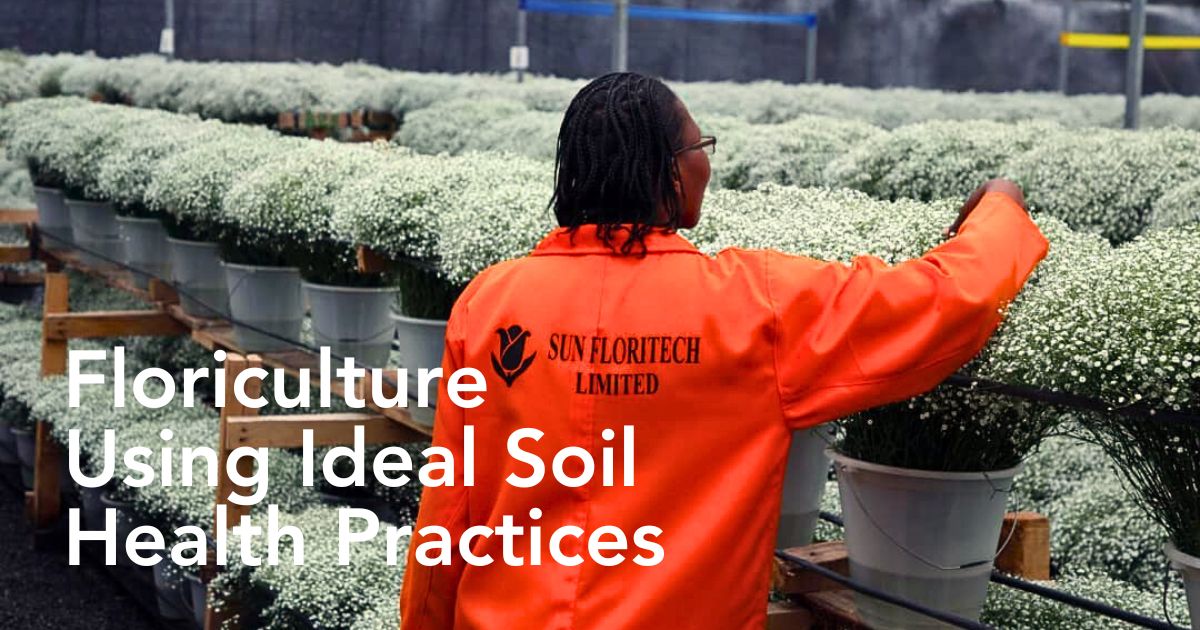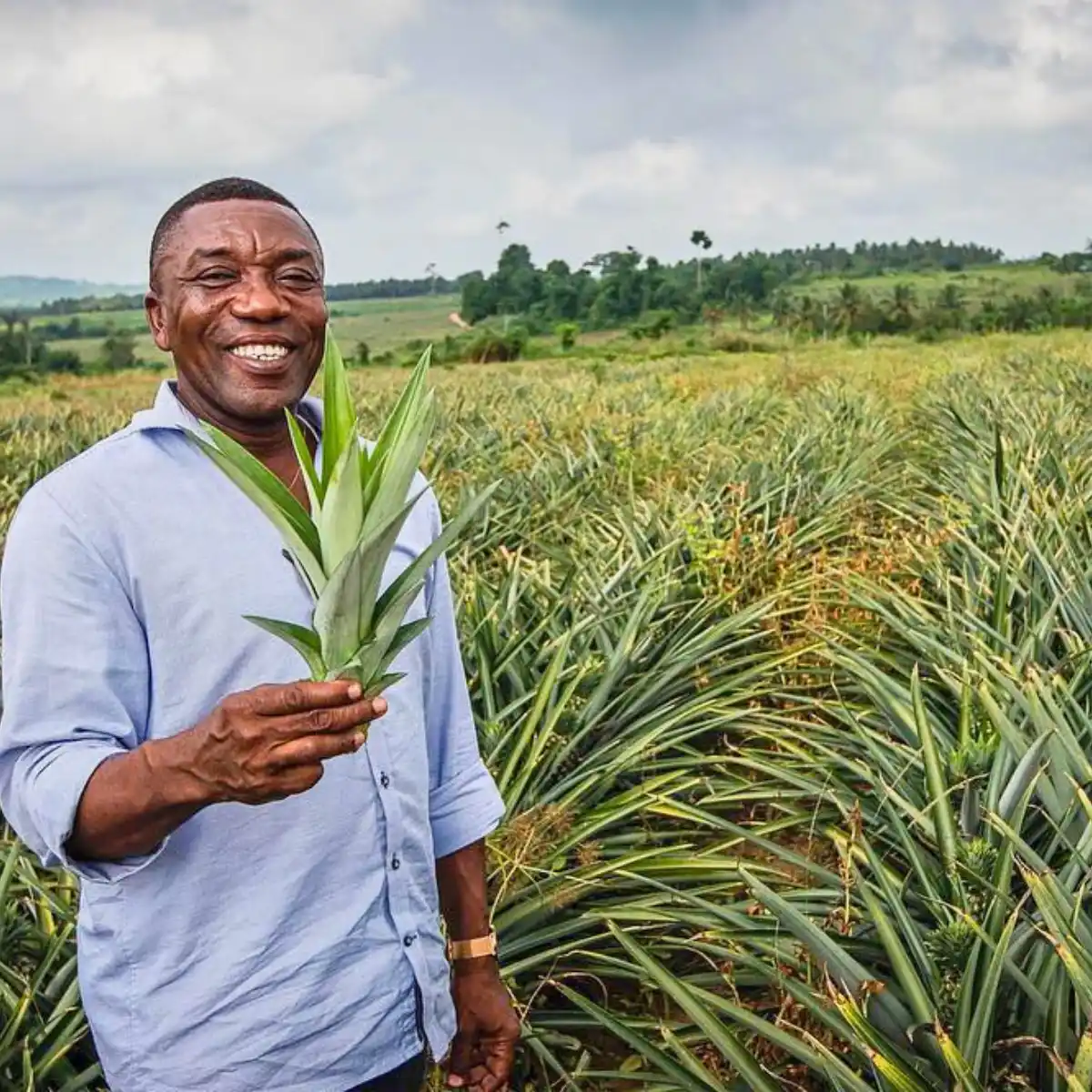Sunfloritech’s journey toward sustainable flower farming is rooted in its commitment to treating soil as 'Mother Earth'. This philosophy supports the farm’s award-winning soil health practices, a model that integrates science, traditional methods, and sustainability. A unique approach to soil management that earned them the Kenya Flower Council (KFC) Floriculture Pinnacle Award, reflecting a profound understanding of how healthy soil contributes to environmental stewardship and productivity.
The Use of Crop Residue Mulch and Live Mulch With Cowpeas
At the core of Sunfloritech’s strategy is the use of crop residue mulch and live mulch with cowpeas—a practice that boosts microbial activity, essential for nutrient cycling and soil fertility.
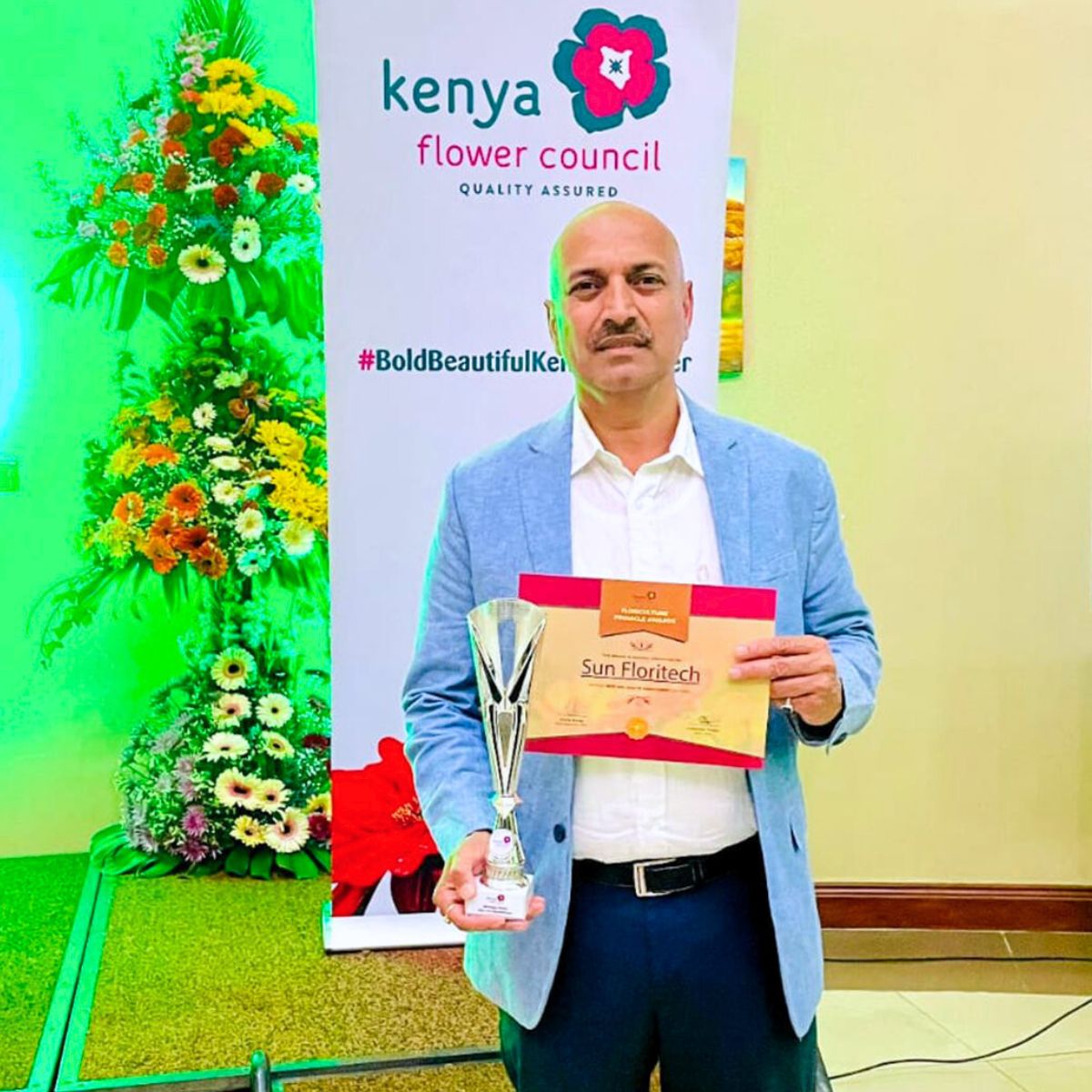
KFC:
“Recent data from the Food and Agriculture Organization (FAO) highlights the importance of such cover cropping—it can enhance soil organic matter from 1% up to as much as 4.5% over several years of consistent cover cropping practice, improving soil structure and microbial ecosystems that strengthens plant health.
The benefits of microbial-rich soil are immense—research has shown that healthy microbial ecosystems can improve plant nutrient uptake, which can lead to higher yields and a natural resilience to pests and diseases.”
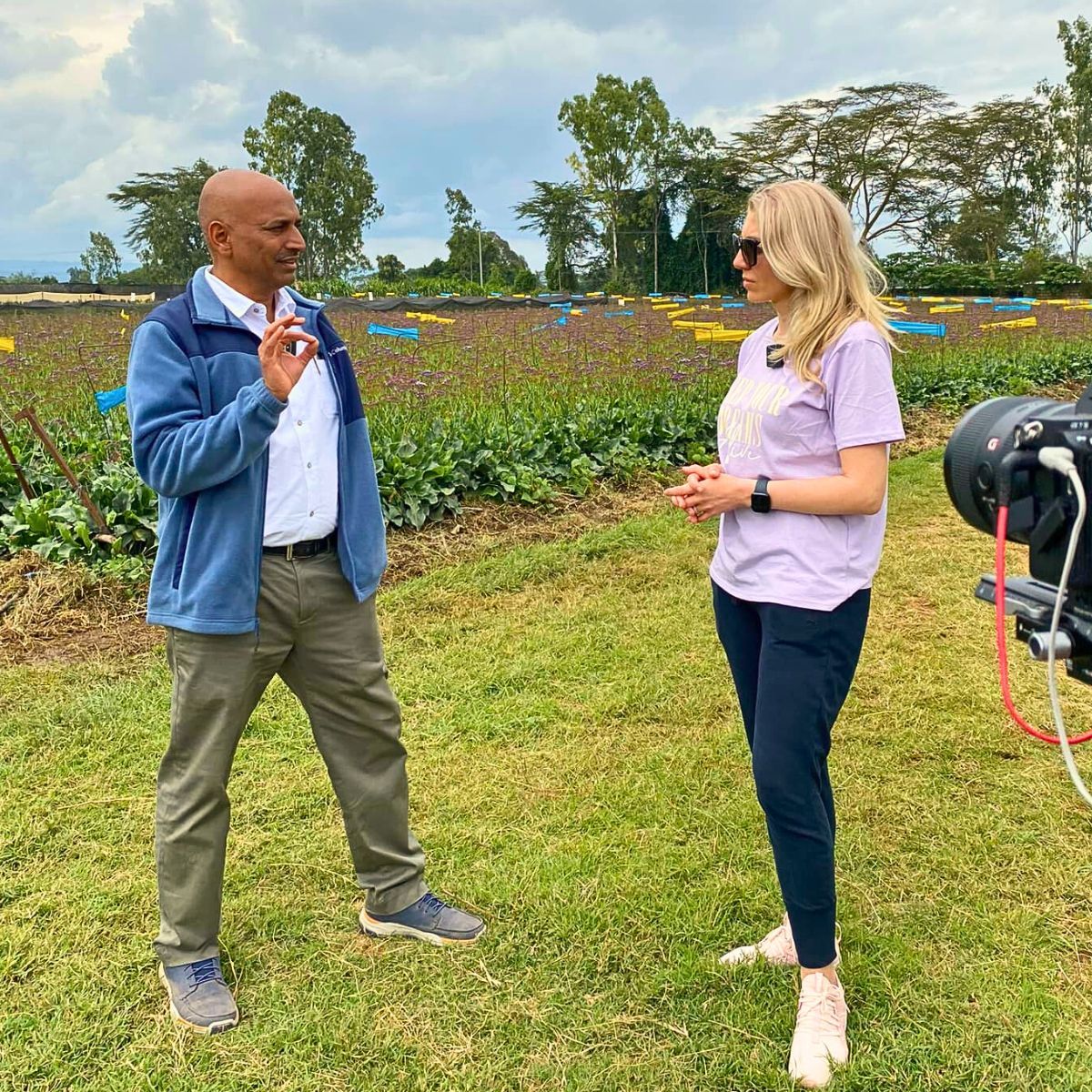
Practices That Promote Biodiversity
The farm also promotes biodiversity through a paradigm shift in weed management. Rather than eliminating weeds, the farm manages them, understanding that certain weeds bring nutrients from deeper soil layers to the surface, contributing to the carbon cycle. According to the United Nations Environmental Programme (UNEP), practices that promote biodiversity, such as Sunfloritech’s weed management strategy, increase soil organic carbon stocks, helping offset emissions and stabilize the global climate. By embracing this, the farm, not only preserves the natural biodiversity but also aligns with broader global sustainability goals in the agriculture/floriculture sector.
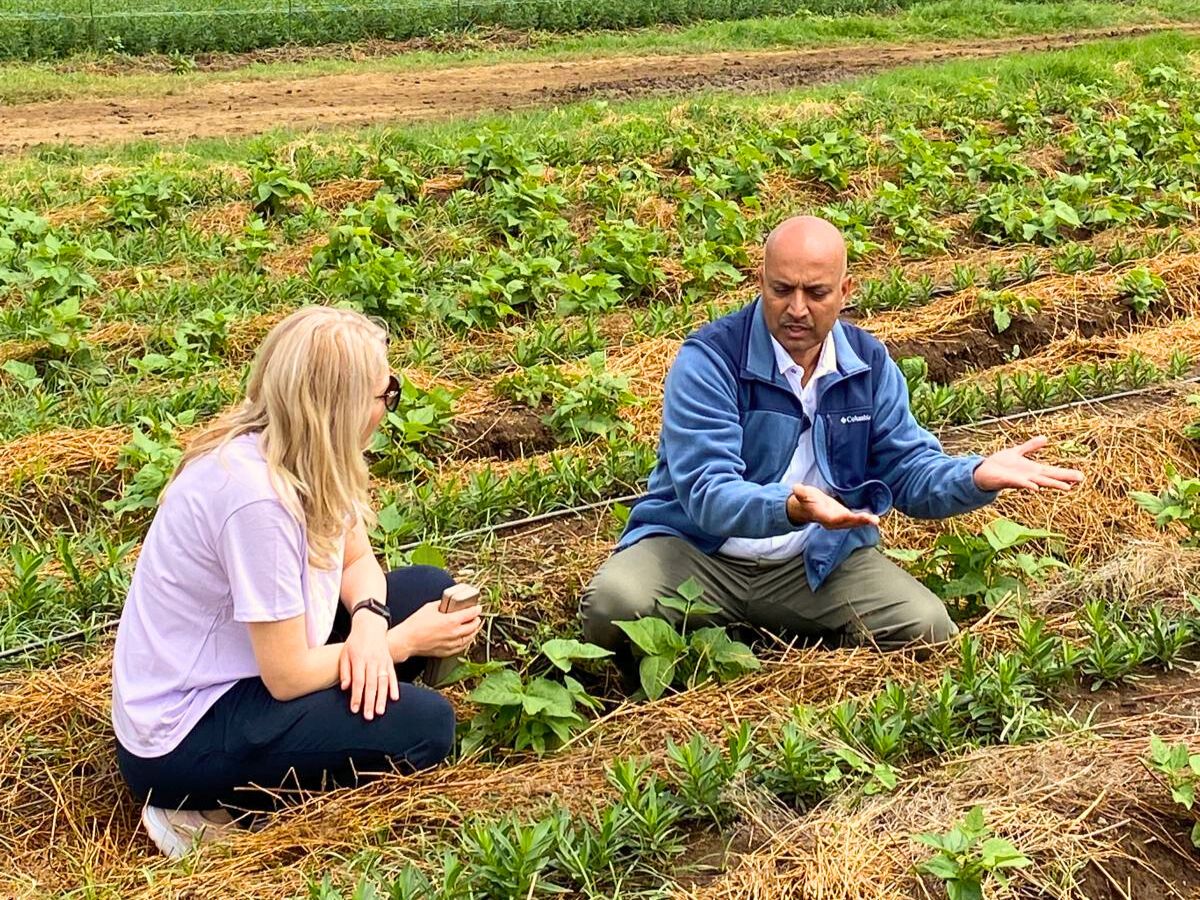
A natural approach to pest management, the use of high-brix crops—crops with increased sugar content—makes plants naturally resistant to pests. This is backed by research that shows that high-brix plants can reduce pest infestation by up to 50%, as they are healthier and less attractive to pests (ICRAF, 2022).
Jeevamrit, the Nutrient-Rich Organic Concoction
Beyond this, the flower farm relies on Jeevamrit—a nutrient-rich organic concoction made from cow dung, bean flour, molasses, and cow urine—to foster soil microbial health, according to Avinash Mokate, the Director at Sunfloritech Ltd. For over eight years, Jeevamrit has yielded measurable benefits, increasing soil organic matter and creating nutrient-dense plants, reducing the need for chemical fertilizers.
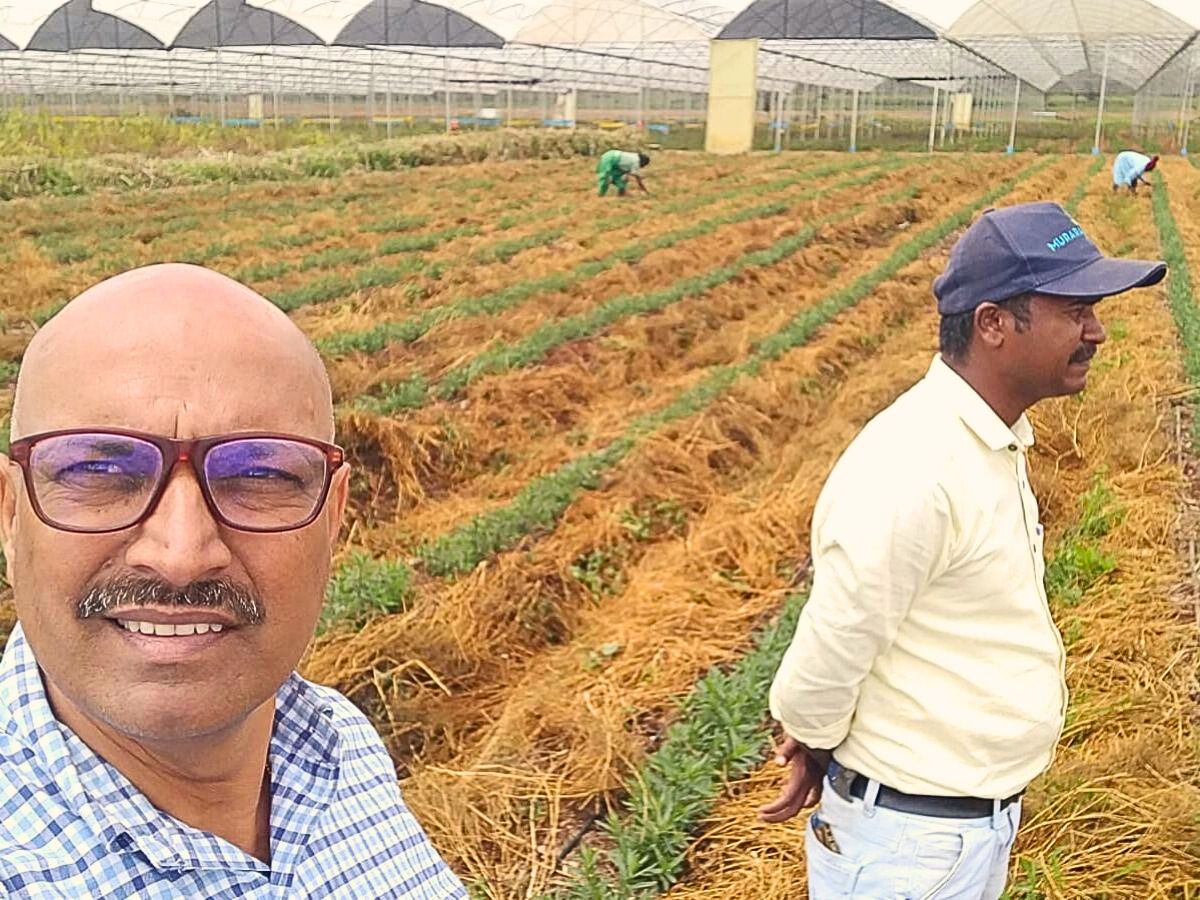
Avinash notes that research by the Indian Council of Agricultural Research supports this, showing that Jeevamrit applications can boost soil nitrogen by up to 20%, effectively enhancing fertility without synthetic additives.
Avinash Mokate:
“Achieving a sustainable shift from synthetic inputs requires a full industry rethink, yet we are pressing forward, gradually transitioning flower by flower to holistic, microbiology-driven methods.”
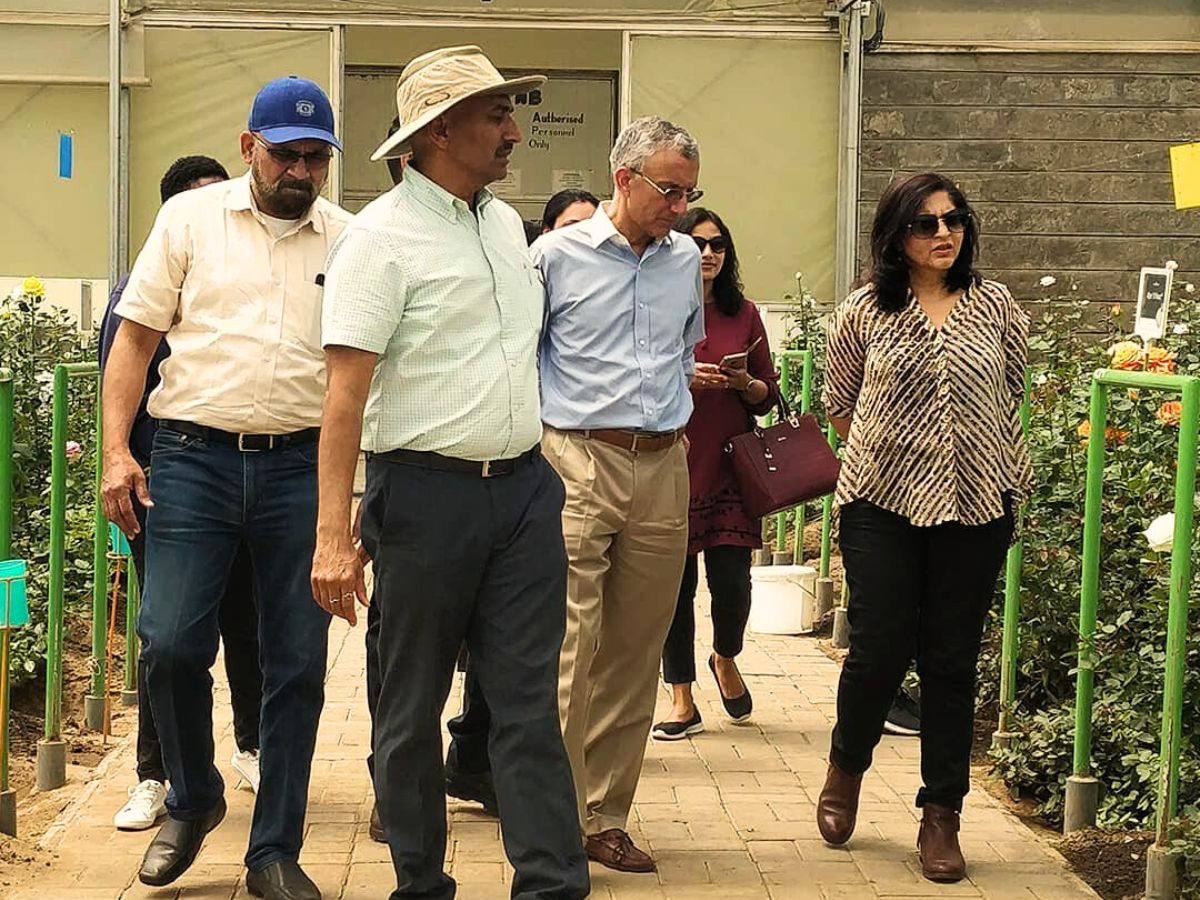
The Use of Precision Floriculture Technology
Precision floriculture technology also plays a vital role in Sunfloritech’s sustainability strategy. The farm employs the Scarab monitoring system to track soil conditions and identify pest hotspots, allowing targeted interventions that minimize the need for widespread chemical treatments. According to the World Economic Forum (WEF), precision agriculture can cut resource use by up to 15% while boosting yields. Healthier soils result in more resilient crops, directly reducing the environmental impact of flower farming.
The farm’s commitment to soil health and productivity stands as an inspiring model within Kenya’s flower industry, where shifts to hydroponic farming often overshadow traditional soil-based methods. While hydroponics promises high yields in controlled settings, the farm values preserving and nurturing soil—an approach that, although challenging, aligns with sustainable principles and fosters long-term health for the floriculture sector.
Avinash Mokate:
“The KFC Pinnacle award is not only a nod to Sunfloritech’s achievements in soil management but also a signal to the broader industry about the importance of soil health as a pillar of sustainable floriculture. For other farms aspiring to similar recognition. Start with simple steps like composting and reducing fungicide and insecticide use, as healthy soil equates to resilient, high-yield crops.”
In an industry where environmental responsibility and high productivity are both essential, Sunfloritech Ltd exemplifies the notion that with innovation, dedication, and a commitment to the soil as a living ecosystem, it’s possible to cultivate both—earning a sustainable yield and a healthier world.
This article is an adaptation of the original report by the Kenya Flower Council (KFC).

